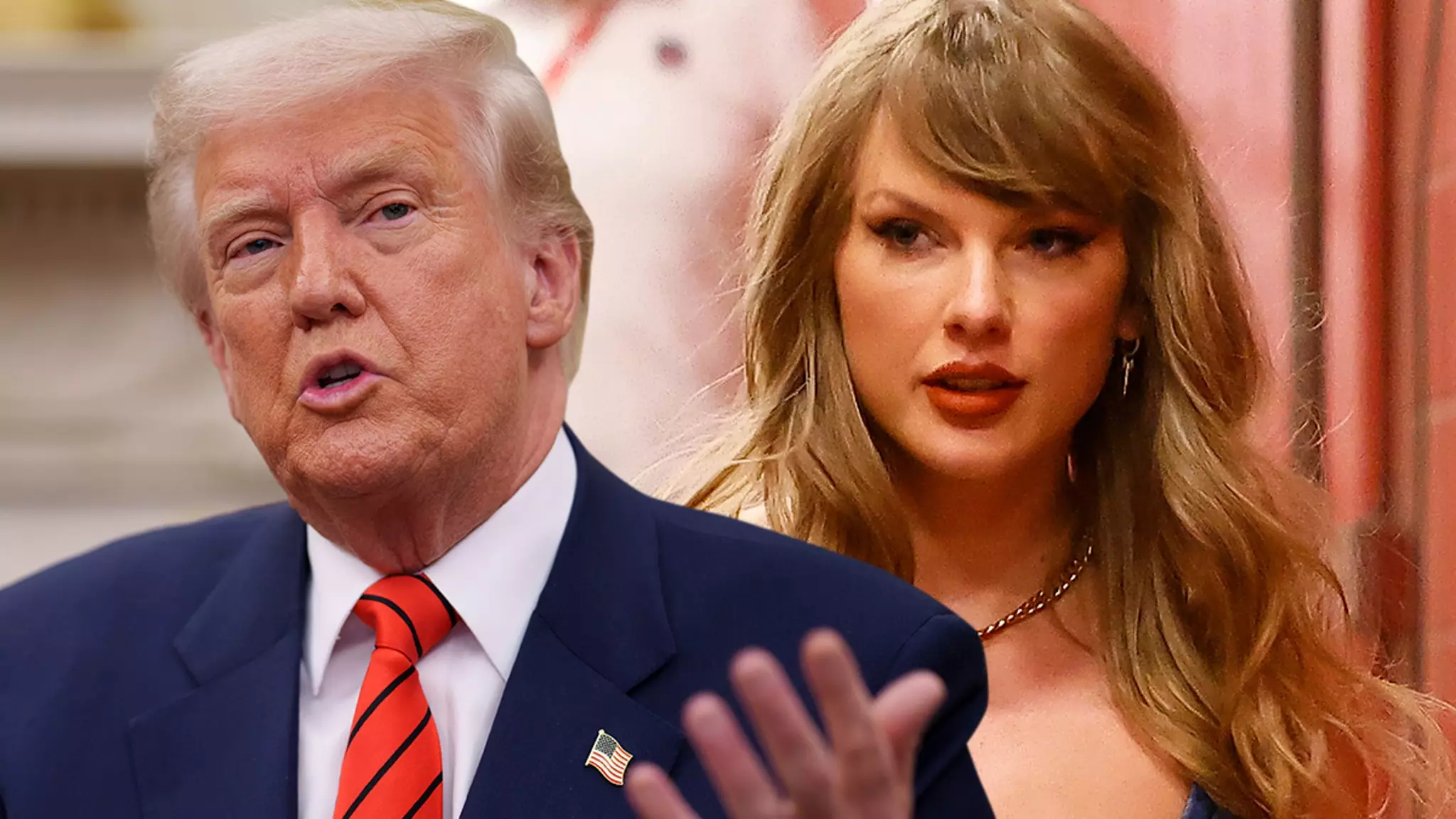In an era where celebrity status intertwines seamlessly with politics, Donald Trump’s unfiltered commentary on pop icon Taylor Swift serves as yet another compelling case study. Trump’s assertion that Swift is no longer “hot” following her political endorsement of Kamala Harris is not merely a personal opinion; it epitomizes the harsh realities of how celebrity perceptions can shift dramatically based on political alliances. In this instance, Trump’s comments reflect a larger narrative where beauty is politicized, and loyalty is paramount, revealing an unsettling relationship between admiration and antagonism.
An Unexpected Disdain
When Trump publicly claimed “I HATE TAYLOR SWIFT” on his Truth Social platform, the message reverberated through the cultural landscape. It’s worrisome that a figure of his magnitude feels empowered to redefine a public persona’s worth by declaring her unattractive based solely on her political stance. Swift’s endorsement of Harris seemingly transformed her from a paragon of talent into a target of ridicule. This transition not only highlights Trump’s volatile opinions but also exposes a chilling truth: loyalty to any political faction can lead to unearned disparagement of individuals who do not conform to expected allegiances.
Revisiting Past Compliments
Interestingly, this is not the first time Trump has expressed admiration for Swift’s looks. A notable interview revealed that he once praised her as “very beautiful,” a statement that stood in stark contrast to his recent tirade. Such rhetorical dissonance raises questions about the sincerity of Trump’s previous appreciation. It appears that admiration from Trump is conditional; Swift’s choices that deviate from his political ideology prompted a swift judgment that starkly contradicts earlier accolades. This fluctuation in opinion showcases how quickly admiration can turn to scorn in the superficial realm of celebrity politics.
Cultural Repercussions
The fallout of Trump’s comments on Swift extends beyond personal feelings; it signifies a broader cultural backlash among her loyal fanbase, affectionately dubbed “Swifties.” This community, fiercely protective of Swift, reacted with indignation, rallying to her defense against Trump’s derogatory remarks. It’s a testimonial of the modern-day phenomenon in which artists’ political affiliations can polarize their fanbase, inciting both fierce loyalty and fierce opposition.
Trump’s dismissal of Swift’s appeal not only illuminates his personal biases but also reflects a deeply entrenched political division in America. His characterizations suggest that a person’s worth can be measured not by their talents or achievements but strictly by their political choices. In this way, Trump’s comments serve as a reminder of how celebrity culture is intertwined with political discourse, illustrating that, in his eyes, alliance outweighs artistry, thereby redefining the parameters of beauty itself.
The interplay between celebrity and political dissatisfaction will continue to evolve, but it remains imperative to question the implications of such personal attacks in a society that grapples with division and animosity, especially when it targets influential figures like Swift.

